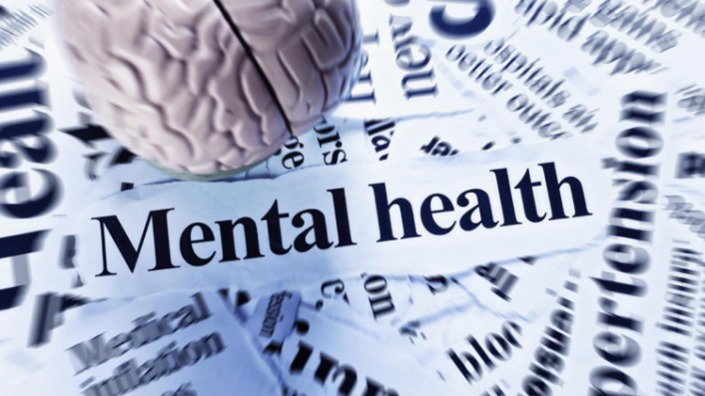
If you have, or believe you may have, a mental health problem, it is helpful to talk about these issues with others. Learn more about building a strong support system and developing a recovery plan. Some experts think that other conditions, such as depression, are behind burnout. But depression and burnout are different, and they need different treatments. For employers who want to learn more about the value and impact of a mental health benefit, download our white paper or get in touch.
The mortality rate from cancer and heart disease is higher among people with depression or other mental health conditions. Other federal, state, and local agencies also play a role in funding care that can impact behavioral health, such as maternal and child health services. They also fund behavioral health care in rural areas, in schools, and in jails and prisons. Historically, mental health and substance use treatment and services in the U.S. were developed locally, based on type and level of need in a community as well as the availability of resources.
Treatment for Mental Health Disorders
For others, it means not being able to think clearly, not being able to communicate with someone who is talking to them, or having bizarre thoughts to help explain weird feelings they are having. Being diagnosed with cancer or having a heart attack can also lead to feelings of depression or anxiety. Around one-third of people with serious medical conditions will have symptoms of depression, such as low mood, sleep problems, and a loss of interest in activities. Individuals with psoriasis experience emotional and psychological distress that negatively impacts their overall health and quality of life.
In contrast, emergency department visits for self-harm behavior were unchanged38 or increased39. Such inconsistent findings across healthcare settings may reflect a reluctance in healthcare-seeking behavior for mental healthcare issues. Despite these numbers, for most youth, mental health distress is episodic, not permanent. With the developmental changes and challenges that youth face normally, especially in adolescence, many experience transitional phases of mood and behavioral changes. Youth and their families can successfully navigate the challenges that come from experiencing a mental health disorder. Those with more persistent mental health challenges usually do very well with treatment, peer and professional supports and services, and a family and social support network. Substance use disorder is its own mental health condition, but addictive behaviors also increase someone’s risk of developing other mental illnesses like depression or anxiety.
Share Content
Our mental health affects our everyday lives, influencing how we respond to stress, how we make decisions, how we interact with others, our sense of fulfillment and purpose in the world, and on and on. Hoover, who is also a co-director of the National Center for School Mental Health, said it’s not surprising that adults would be quick to point to issues related to social media use as students’ primary stressor. Combined, both sets of responses offer a fuller picture of what is corroding students’ mental wellbeing, said Sharon Hoover, a professor of child and adolescent psychiatry at the University of Maryland School of Medicine. The survey results also serve as a warning to adults not to become too fixated on one cause of students’ mental health problems, she said. Your mental health isn’t something you should have to care for alone. There are certain points in your journey where you may need more care and support than others — and that’s when professional help comes into play.
Andy Dunn, author and co-founder of Bonobos, shares practical advice for disclosing mental health issues, comparing the experience to a founder experimenting with a minimum viable prototype. Rebecca Abara, agile coach, BetterUp, shares how she incorporates mindfulness into her mental health care.
Set goals for yourself (personal and professional)
When identified early, you can improve your life, develop positive and rewarding social relationships, and positively change the course of your future. Mental health is one of the significant issues that teens face daily. Depression, anxiety, conduct, and bipolar disorder are just a few mental disorders affecting an increasing number of people yearly. Here we review both the direct and indirect effects of COVID-19 on mental health. First, we summarize empirical findings on how the COVID-19 pandemic has impacted population mental health, through mental health symptom reports, mental disorder prevalence and suicide rates.
Read more about substance abuse here.
One important sign parents should watch for is a noticeable change in behavior. You might have one child who is introverted and has always loved alone time. If, however, his extroverted older brother who loves making friends suddenly holes up in his room and doesn’t want to see anyone, that warrants investigation.
This may involve interventions to address their general health, any unfavorable socioenvironmental factors, substance abuse or treatment adherence issues. In the past, education such as MHFA training, has focused on educating the individual and not on educating the community at large. To fully improve mental health literacy in community settings, all members must be included in the trainings. Parents of students receiving mental health education should receive their own training so they can learn to recognize signs and symptoms of mental illnesses in their children and support them at an early age.
In the rush to vaccinate rebuild our lives, the mental health of young people risks becoming a neglected casualty. Mental health problems are common among college students, and they can be challenging for parents to spot from a distance. But talking to your student nonjudgmentally and watching for signs of problems can help. If you’re worried, you can encourage your child to talk with on-campus behavioral health counselors. To discuss your concerns, learn more about how to spot mental illness and support your college student, reach out to Banner Health. If you or a loved one is living with a mental disorder and a co-occurring addiction, The Recovery Village at Baptist Health is here to help.







